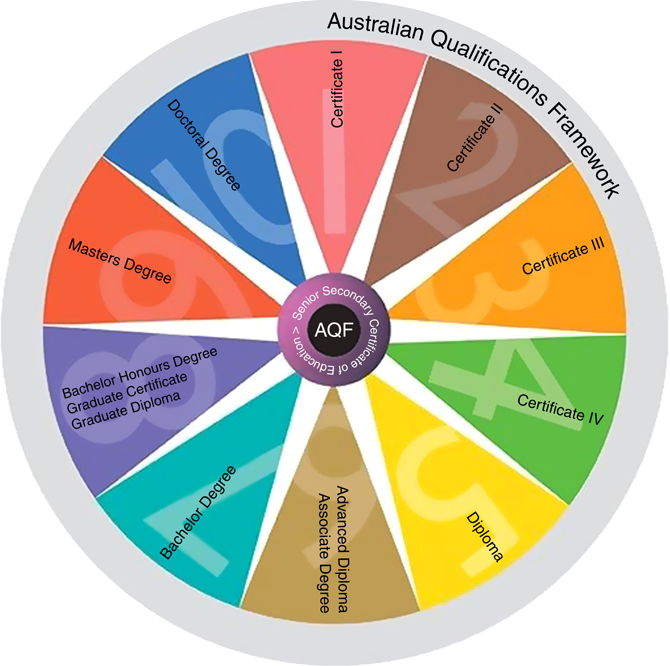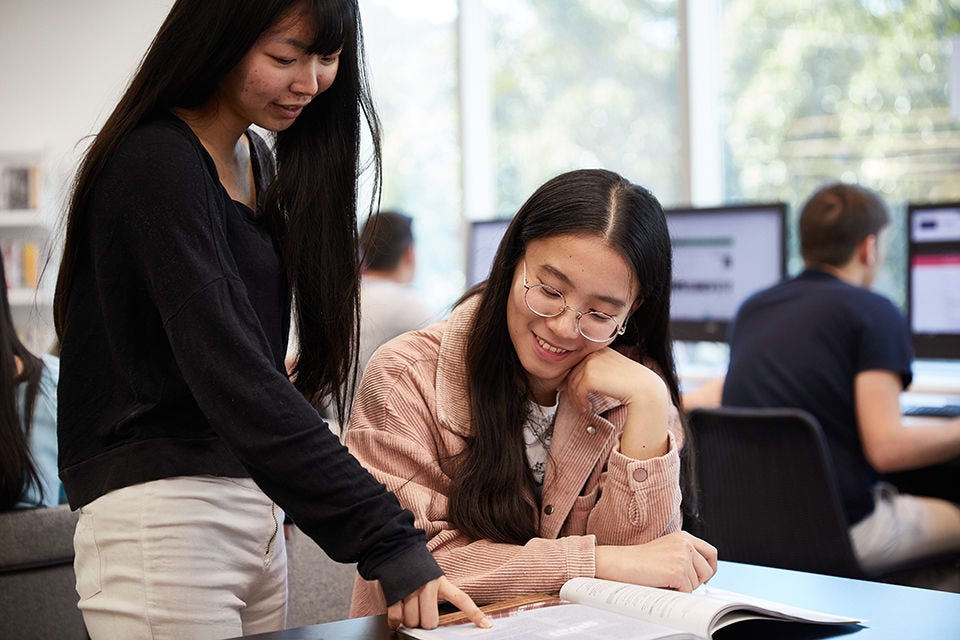The Australian education system provides primary, secondary and higher education to international students.
School (Primary and Secondary)
Australia hosts international students aged five years of age and over, including children of international students who are studying at a tertiary level.
Australian schools are among the finest in the world, including government and private schools. Fees and entry requirements vary across Australian states and territories, and across schools.
Schools academic year dates
- Length - 13 years in total (Kindergarten/Preparatory to Year 12)
- Terms per year - Four, with holidays (breaks) between each term
- Start date - Late January/early February
English language courses
ELICOS stands for English language Intensive Courses for Overseas Students. These courses must meet strict national standards and follow an industry-led quality assurance framework. Whatever your reason for wanting to learn English in Australia, there is a course to help you reach your goal.
ELICOS academic year dates
- Length - From five weeks to 60 weeks, depending on your level
- Semesters per year - The year is split into blocks of ELICOS weeks
- Start date - Throughout the year
Pathway and Foundation courses
If you don’t quite meet the academic requirements for direct entry to an Australian university, pathway studies can give you with the skills you need to start an undergraduate higher education program.
Education pathways can include English language preparation, Vocational Education and Training (VET) qualifications and Foundation studies.
Some higher education providers have formal arrangements with pathway providers to give study credits for prior learning.
Foundation academic year dates
- Length - 1 year (some may be longer)
- Semesters - Vary by course
- Starts - Usually in February, but can vary by course.
Vocational Education and Training
Vocational Education and Training (VET) is taught by Australian Government-owned Technical and Further Education (TAFE) institutes and private registered training organisations (RTOs).
These education and training providers are usually smaller than universities and offer more practical courses, with job-ready learning leading to over 500 different careers. Many VET courses include work placements or workplace-based learning.
Vocational Education and Training (VET) academic year dates
- Length - 1 to 4 years
- Semesters - 2 (or 4 ‘terms’)
- Starts - Late January/early February (can vary by course).
Higher education
Universities and non-university higher education providers (including private institutes and Government-owned TAFEs) offer undergraduate and postgraduate studies, including Bachelor degrees, Master degrees and Doctoral degrees.
Many higher education providers also offer Graduate Diploma and Graduate Certificate programs, and even Associate Degrees leading to full Bachelor qualifications.
University academic year dates
Undergraduate (Bachelor degree and Vocational Degree level)
- Length - Typically 3 years (4 years for a Bachelor Honours degree)
- Semesters - 2, but some providers now offer three trimesters
- Starts - Usually March, but can vary by course and education provider. Mid-year or second semester starts can also be available.
Postgraduate
- Length - 1 to 2 years
- Semesters - 2, but some providers now offer three trimesters
- Starts - Usually March, but can vary by course and education provider
Doctoral
- Length - 3 years (plus 1 year for review)
- Semesters - Most Doctoral candidates do not attend classes, but instead have academic supervision throughout the year
- Starts - Start dates are negotiated with a Doctoral degree supervisor
Australian Qualifications Framework for tertiary studies
The Australian Qualifications Framework (AQF) is the national tertiary (post-secondary) education system that has 10 different levels. You can move from one level of study to the next, as long as you meet your student visa requirements. These qualifications are nationally accredited and recognised internationally in many industries.




